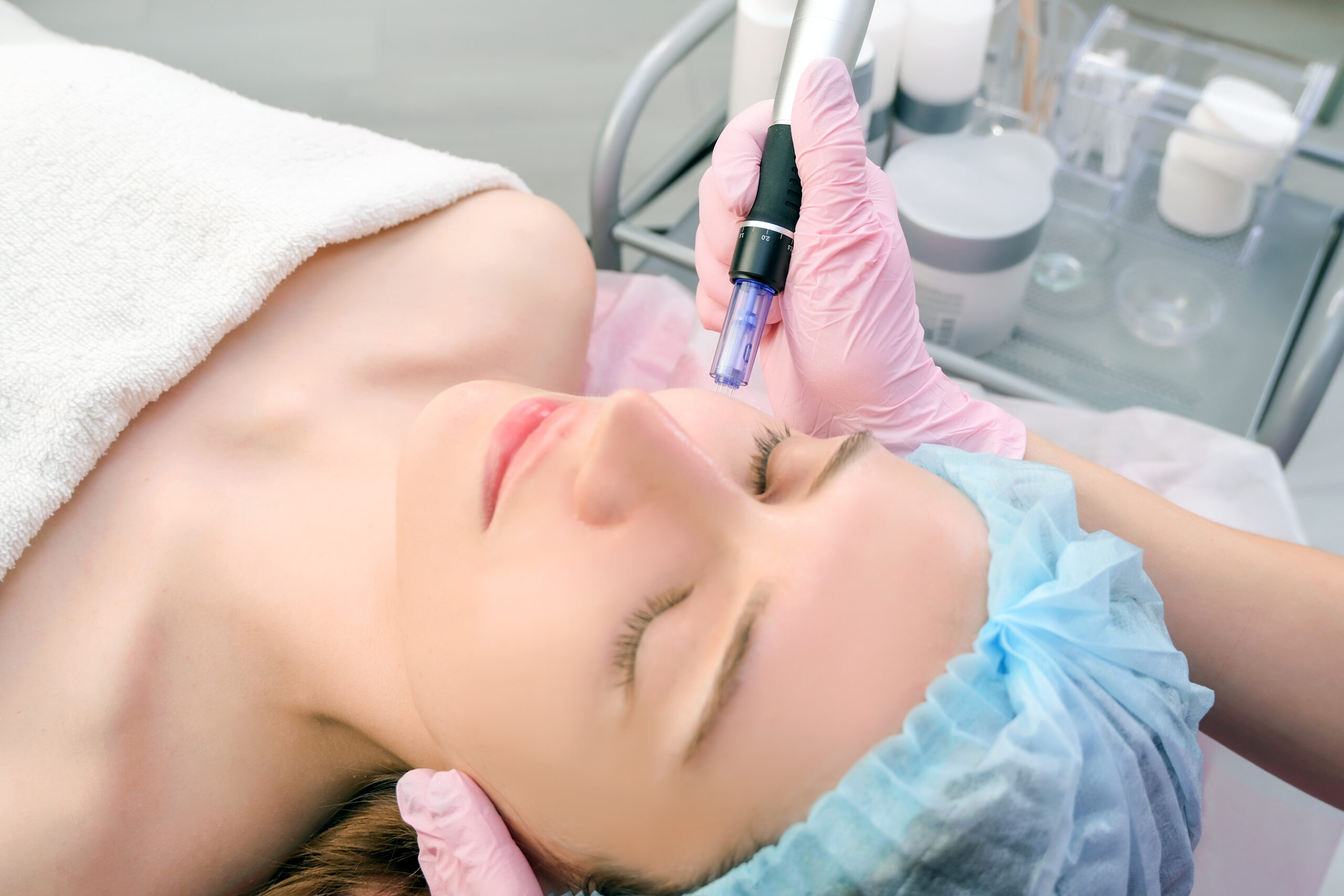microneedling treatment for hair in Bangalore
Description:
Microneedling for hair, also known as scalp microneedling or collagen induction therapy, involves using a device equipped with fine needles to create thousands of micro-injuries on the scalp. This procedure stimulates the body's natural healing response, leading to increased production of collagen and elastin, fostering a healthier environment for hair growth. By improving blood circulation and promoting the absorption of topical treatments, microneedling aims to revitalize hair follicles and enhance hair density.
Indications:
Androgenetic Alopecia (Pattern Baldness): Effective for individuals experiencing hereditary hair loss, revitalizing dormant hair follicles and promoting new hair growth.
Alopecia Areata: Can stimulate hair regrowth in areas affected by this condition, characterized by patchy hair loss.
Diffuse Thinning: Enhances hair density and improves overall scalp health for individuals experiencing general hair thinning.
Post-Hair Transplant: Used as an adjunct treatment to support healing and improve hair transplant results.
Scalp Health Improvement: Addresses poor scalp circulation and inflammation, creating a favorable environment for hair growth.
Hair Regrowth Stimulation: Stimulates growth factors and increases absorption of topical hair growth products, such as minoxidil.
Contraindications:
Active Scalp Infections or Conditions: Avoid on areas with infections (e.g., fungal infections) or inflammatory conditions (e.g., psoriasis, eczema).
Recent Scalp Surgery or Trauma: Not suitable for recently operated or traumatized areas, including hair transplants, to avoid interfering with healing.
Severe Chronic Health Conditions: Individuals with uncontrolled diabetes, blood disorders (e.g., hemophilia), or autoimmune diseases should consult a healthcare provider.
Pregnancy and Breastfeeding: Safety is not well-established; generally recommended to avoid during these periods.
Medication Interactions: Discuss anticoagulants or high doses of corticosteroids with a healthcare provider, as they may need adjustments or postponements.
Scalp Sensitivity: Those with highly sensitive skin or prone to keloid scarring should avoid or discuss risks with their provider.
Procedure:
Preparation: The scalp is cleansed thoroughly, and a topical anesthetic is applied to minimize discomfort.
Microneedling: A microneedling device creates controlled micro-injuries across the scalp, with depth and density adjusted based on individual needs.
Post-Treatment Care: The scalp may be slightly red and sensitive. Patients should avoid direct sun exposure, refrain from harsh hair products, and follow specific aftercare instructions from their practitioner.
Expected Results:
Short-Term: Redness and minor discomfort are typical, usually subsiding within a few days.
Long-Term: Improvement in hair density and regrowth is often noticeable after a few sessions, with optimal results typically seen after 3-6 months of consistent treatments.
Conclusion:
Microneedling for hair is a promising treatment option for various types of hair loss, leveraging the body's natural healing processes to improve scalp health and stimulate hair growth. With proper indications and precautions, it offers an effective, minimally invasive solution for individuals seeking to enhance hair density and promote overall scalp health.



